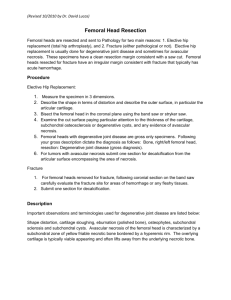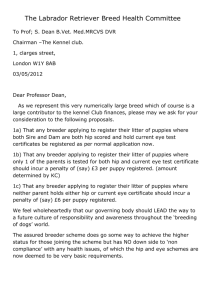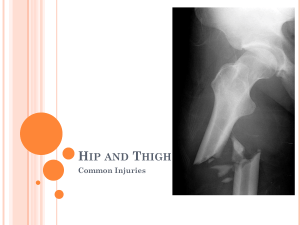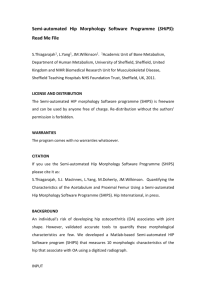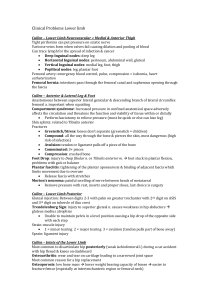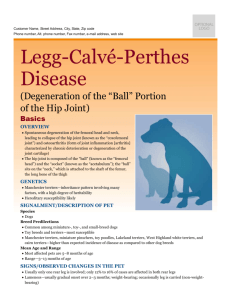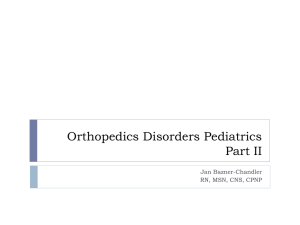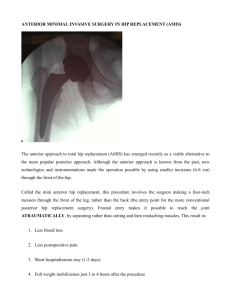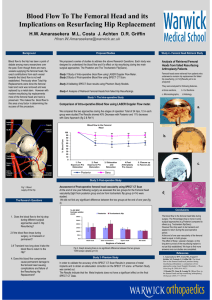NECROSIS OF THE FEMORAL HEAD
advertisement
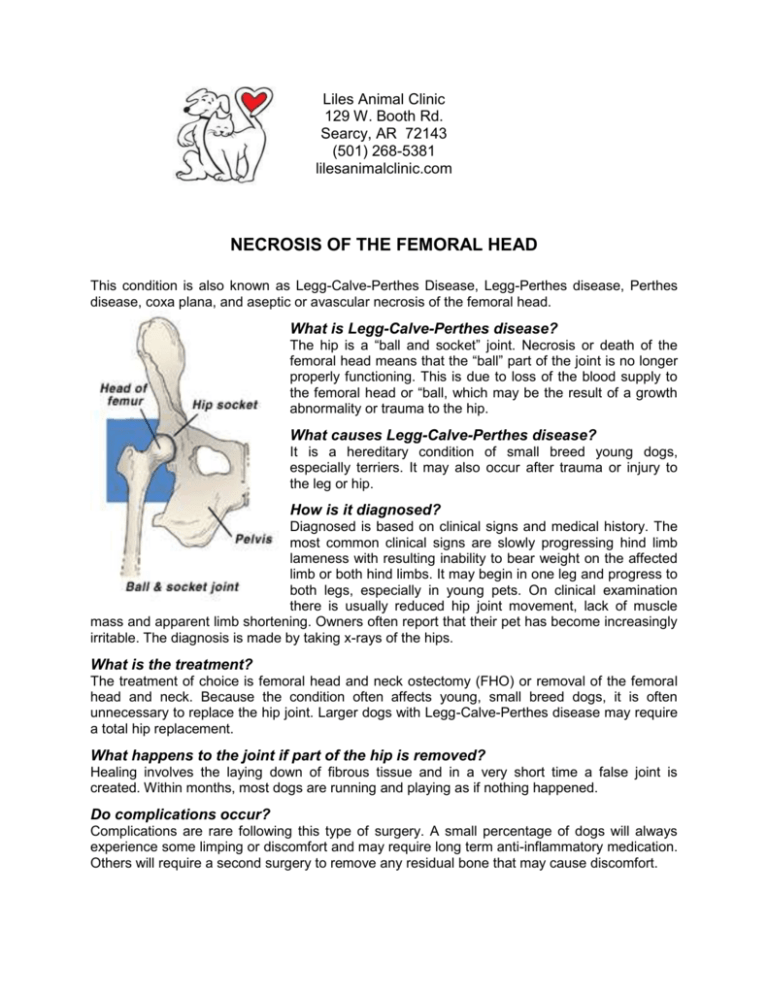
Liles Animal Clinic 129 W. Booth Rd. Searcy, AR 72143 (501) 268-5381 lilesanimalclinic.com NECROSIS OF THE FEMORAL HEAD This condition is also known as Legg-Calve-Perthes Disease, Legg-Perthes disease, Perthes disease, coxa plana, and aseptic or avascular necrosis of the femoral head. What is Legg-Calve-Perthes disease? The hip is a “ball and socket” joint. Necrosis or death of the femoral head means that the “ball” part of the joint is no longer properly functioning. This is due to loss of the blood supply to the femoral head or “ball, which may be the result of a growth abnormality or trauma to the hip. What causes Legg-Calve-Perthes disease? It is a hereditary condition of small breed young dogs, especially terriers. It may also occur after trauma or injury to the leg or hip. How is it diagnosed? Diagnosed is based on clinical signs and medical history. The most common clinical signs are slowly progressing hind limb lameness with resulting inability to bear weight on the affected limb or both hind limbs. It may begin in one leg and progress to both legs, especially in young pets. On clinical examination there is usually reduced hip joint movement, lack of muscle mass and apparent limb shortening. Owners often report that their pet has become increasingly irritable. The diagnosis is made by taking x-rays of the hips. What is the treatment? The treatment of choice is femoral head and neck ostectomy (FHO) or removal of the femoral head and neck. Because the condition often affects young, small breed dogs, it is often unnecessary to replace the hip joint. Larger dogs with Legg-Calve-Perthes disease may require a total hip replacement. What happens to the joint if part of the hip is removed? Healing involves the laying down of fibrous tissue and in a very short time a false joint is created. Within months, most dogs are running and playing as if nothing happened. Do complications occur? Complications are rare following this type of surgery. A small percentage of dogs will always experience some limping or discomfort and may require long term anti-inflammatory medication. Others will require a second surgery to remove any residual bone that may cause discomfort. Will I be able to breed my dog? Since this is often a hereditary condition, we do not recommend breeding any dog diagnosed with Legg-Calve-Perthes disease. This client information sheet is based on material written by Ernest Ward, DVM. © Copyright 2005 Lifelearn Inc. Used with permission under license. February 17, 2016

